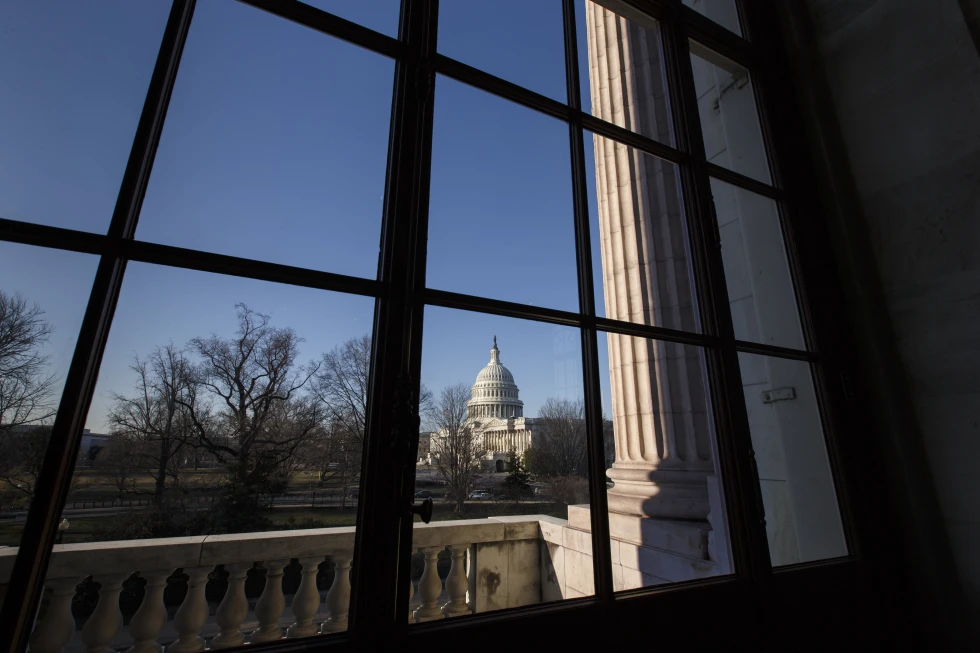Democrats are attempting to put Republicans on the defensive on women’s health concerns by bringing up a bill that would create a nationwide right to in vitro fertilization. The Senate will vote on the matter for the second time this year.
On Tuesday, senators will decide whether to proceed with the bill a second time around, following Republicans’ initial blockage of it this year. Although the bill’s chances of passing are low, Democrats intend to utilize the second chance vote to press Republican congressional candidates and highlight differences between Trump and Vice President Kamala Harris in the presidential campaign—particularly considering Trump’s claim to being a “leader on IVF.”
Following the Alabama Supreme Court’s ruling earlier this year, which establishes the potential legal status of frozen embryos as children, the movement gained momentum. A number of the state’s in vitro fertilization clinics temporarily halted treatment until the Republican-controlled legislature passed a bill to safeguard the facilities.
Using this opportunity, Democrats swiftly voted in June on a bill introduced by Illinois Senator Tammy Duckworth and warned that the technique might be next in line for attack after the Supreme Court’s 2022 decision to remove the right to abortion. Additionally, the procedure’s accessibility and affordability would be enhanced under the legislation.
Democrats’ top senator, Chuck Schumer, called Tuesday’s vote a “second chance” for Republicans while speaking from the Senate floor.
All Americans, even those back home and couples hoping to have a family, are keeping an eye on the situation, Schumer added.
The majority of Republicans voted against the Democratic proposal in June, with the exception of two, on the grounds that the federal government had no business interfering with state sovereignty and that the measure lacked serious consideration. Republicans Lisa Murkowski of Alaska and Susan Collins of Maine joined Democrats in voting to advance the bill.
Republicans, however, have been busy trying to rebut Democrats’ claims about IVF, with several openly endorsing the procedure. Without going into detail, Trump last month stated his intention to have health insurance or the government foot the bill for reproductive treatments.
During his discussion with Harris earlier this month, Trump referenced the “very negative” ruling from the Alabama court—which was subsequently overturned by the legislature—and claimed to be a “leader” on the matter.
However, Republicans have run into trouble on this subject because their state laws recognize embryos killed during in vitro fertilization as having legal personhood. This applies to both fetuses and embryos. The Republican Party’s platform, which was approved in the summer in advance of the party’s convention, endorses the idea that the 14th Amendment, which guarantees equal protection under the law to all Americans, should be used by states to recognize fetal personhood. The program also suggests funding in vitro fertilization (IVF), however it doesn’t specify how the party intends to accomplish this.
According to Democrats, Republicans should support their bill if Trump is serious about expanding access to the surgery.
Duckworth spearheaded the Senate’s push on the bill; she is a mother of two who benefited from the reproductive treatment and is a veteran. Following the initial vote that halted the bill, she resorted to saying, “How dare you,” to her Republican colleagues.
Republicans have sought to introduce alternatives to the current policy, such as measures to prevent states from passing outright prohibitions on the therapy, but Democrats have opposed these measures, claiming they do not go far enough.
Alabama Republican Katie Britt and Texas Senator Ted Cruz attempted to pass a measure in June that would have threatened to cut off Medicaid money to states that had banned in vitro fertilization. In a floor speech at the time, Republican Senator Rick Scott of Florida mentioned that his daughter was undergoing in vitro fertilization treatment and offered a plan to make health savings accounts more versatile.
Republican Ted Cruz, who is seeking reelection in Texas, called the Democrats’ attempt to pass legislation a “cynical political decision.”









